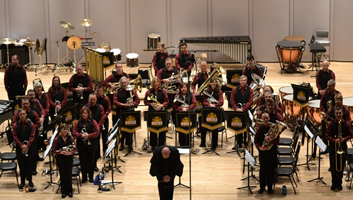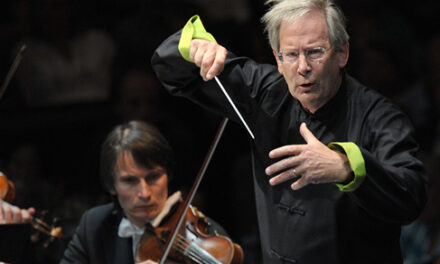Mark Evans: Mark! My Words – How to Discover the Joy of Music, the Delight of Language, and the Pride of Achievement in the Age of Trash Talk and MTV. (Bassett Books, “An Imprint of Cultural Conservation,” 2012). 442 pages + endnotes. $24.97. Available from http://markmywords.me.
Talk about food for thought! In a sense, the long title of this book tells it all. A mouthful? You bet. Essential reading? For sure. It’s part diatribe, part précis (of all things meaningful), part lament for the culture we have lost – culture that, like erudite writing in our newspapers, seems to erode more and more with every passing day. In a sense, it’s a substantial recapitulation of everything one ought to have learned during a year-long college-level course in the history of Western civilization but – for one reason or another – didn’t. And it comes with a handy how-to guide for turning around life as we know it, one valiant foot-soldier at a time.
Author Mark Evans is one of the more amazing denizens of the Sandhills region of North Carolina, which includes Pinehurst and Southern Pines. He is firmly anchored in the great continuum of thinkers and writers that have been drawn to or stemmed from that area – for openers, think of the Weymouth Center for the Arts and Humanities, the lovely old home so widely revered for cradling writers and chamber music, too, in an atmosphere of refinement, polish, and grace. Evans himself has long exuded intellectualism in copious quantities, starting with his authorship of Soundtrack: The Music of the Movies, one of the finest books of its kind yet published.
In Mark! My Words (to use its short title), this author’s wisdom courses rapidly through an almost bewildering range of topics. He’s hardly the first commentator to decry the culture of celebrity in which our contemporary society seems mired, but unlike most essayists he goes from there to tell us why this is such a terrible problem for education, culture, society, and even democracy. Along the way he addresses the decline of language, our increasing ignorance of history, and the madness of the anti-intellectual movement. There are truly brilliant sections on music, visual art, and literature that are enriched in depth and detail by Evans’ own erudition and life-experiences (on both coasts and during what must have been extensive travel) that are nonetheless stated in disarmingly logical and straightforward ways that even those whose education has been far more limited can readily comprehend. The book nears its conclusion with sections on why the past matters, why the present – under our current educational and political leadership, with the titans of the entertainment industry calling many of the proverbial shots – should give us all pause, and what the future may hold. An extended coda, fully a tenth of the entire volume, is devoted to an action plan for intellectual redemption (or, as Evans puts it, “cultural conservation”) that all of us may with relative ease follow, for our own and ultimately for society’s benefit. As someone once said in a slightly different context, all it takes is commitment, one day at a time.
There are two caveats. There are some minor typographical issues here and there. (Writing this, I recall my mother, who corrected library books in red ink.). The other downside is only marginally more noticeable – by and large, Evans seems to cite conservative cultural and social commentators a good deal more than liberal ones – but that may perhaps reflect the predilection of such writers for these topics as emblematic of issues calling aloud for solutions. All that said, this author knows whereof he speaks. This book will encourage those who are troubled by the now-ubiquitous “trash talk” to which Evans refers, by MTV’s entertainment-masquerading-as-art, and by other readily perceptible signs of cultural decline. Evans’ analyses and proposed antidotes are urgently recommended!












